When it comes to paper, think blue
by Melanie Stewart
When you think of taking sustainable actions, your first thought may be to recycle. A great step to take considering an average of 75% of household waste streams are recyclable. The med center’s stream is a little different, but we still should have no problem meeting our recycling goal of 35%.
I get a lot of questions about recycling, so the following information will help. Please note this information does not include biohazardous/red bag waste which should be handled per policy. Paper is handled the same at all UNMC/Nebraska Medicine locations, and we are working to standardize other recycling procedures to match the 42nd and Dewey campus.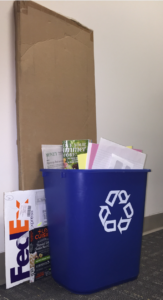
Blue Desk-Side Recycle Bins: By UNMC and Nebraska Medicine Policy, ALL paper must go into the desk-side recycle bin (usually blue) and is shredded prior to recycling. This bin should contain paper only. All types of
paper including newspaper, envelopes, post-its, etc. can be placed in this container along with confidential/protected information. EVS employees are background-checked and trained to handle this waste; departmental shredding is not necessary and it wastes time, money, and resources.
Cardboard: Break down all cardboard boxes, place between the wall and your other containers. This includes all grades of cardboard—frozen meal boxes to corrugated. No cardboard should be placed in blue (paper) bins. Hanging file folders are considered cardboard–but if they are still in usable shape, post them on the supply exchange!
Metal/Plastic Recycling Bins: The Med Center recycles metal and plastic together in the same containers. Most of these are tall green rectangular bins with a laminated sign indicating they are for metal and plastic. Please use this container for any metal (except aluminum foil), and for rigid plastic. Rigid plastic must hold shape, but plastic number does not matter; so water bottles, yogurt cups, frozen meal trays, straws – YES. Plastic bags, cellophane, bubble wrap – NO. Please do not place any glass, Styrofoam, plastic bags, or paper into these containers.
Non-Recyclable Trash: Any item that is not recyclable should be placed in trash cans. The larger containers are lined with a plastic bag, and are found in many locations. Please use these containers for all trash. Your deskside container most likely does not have a liner, so please only place ‘dry’ trash in that. “Wet” trash—food, apple cores, gum, etc. must go in trash containers with a liner.
Techno-Trash: Work related discs, tapes, and CD/DVDs can also be shredded and then recycled; please contact EVS at 9-4073 if you have items.
Books: Any books you think people may like to read can be placed on the Little Free Library, located outside the Cornerstone Giftshop on the 2nd floor of the DOC. If shelves are full or you have a large donation, please contact livegreen@unmc.edu , do not leave them on the ground around the shelf. Also consider donating books or recent magazines to volunteer services. Textbooks/reference books/journals, can also be donated (and reused!) to Better World Books. Books go to developing nations to help train medical professionals, no book is too old. Donation boxes are located outside the Bookstore in the Student Life Center and the C-Store in the Michael Sorrell Center.
Thanks for taking the effort to sort your waste! Not only are you following campus policy, but you are helping to save the campus money, decreasing pollution, and helping to meet the goals of the Sustainability Master Plan. Disposing of items in the proper stream saves money as we pay less to remove recyclables from campus than we do trash. Remember, using less and reusing are always the best options!
Medication Take-back Box in Outpatient Pharmacies
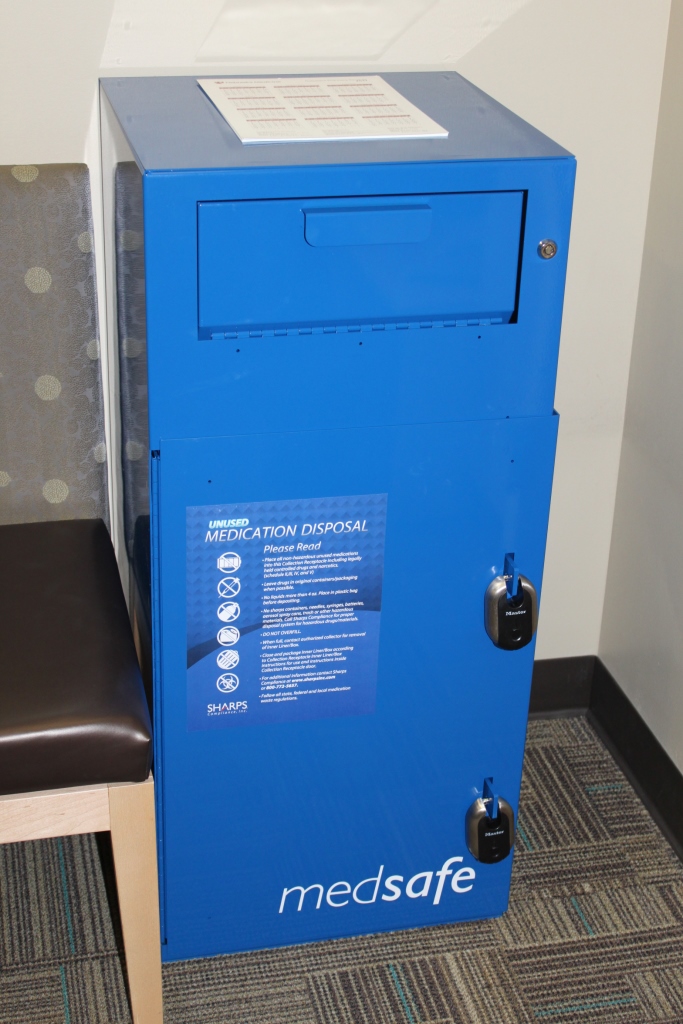
Nebraska Medicine’s three outpatient pharmacies are pleased to offer a drop-off site for unneeded, unwanted, or expired medications. Any medication, including controlled substances and those in liquid form, can be dropped into the box. It’s a service to our patients, colleagues, and students to provide a way to properly and safely dispose of medications.
Unused medications left in the house can be abused by family members creating an unnecessary risk. Medications not properly disposed of are often trashed or flushed, both having negative effects on the environment, animals, and people downstream.
“We receive a lot of questions about what to do with medications that are no longer needed,” says Maria Kellison, pharmacy support manager. “Patients are often left with unused medications due to changes in medications or dosages. Now, they can safely dispose of unused medications at our outpatient pharmacies.”
This service started in April, and the response has been impressive. Kellison says since the program started, the three sites have collected just over 126 gallons of medication.
“We were surprised by the tremendous volume of medications dropped off at our sites,” says Kellison. “It became obvious there was clearly an unmet need for proper medication disposal for not just our patients, but our colleagues as well. We have been able to facilitate the safe disposal of 126 gallons of medications that may have inadvertently harmed people and the environment.”
The blue, steel, “Medsafe” lockboxes are easily accessible in the waiting areas of the Outpatient Pharmacy in the DOC, Bellevue and also at the University Health Center in Lincoln.
The service is offered every day during pharmacy business hours to employees, students, and patients.
If you have questions, contact Kellison at mkellison@nebraskamed.com or 402-559-3469.
Little Steps Big Impact
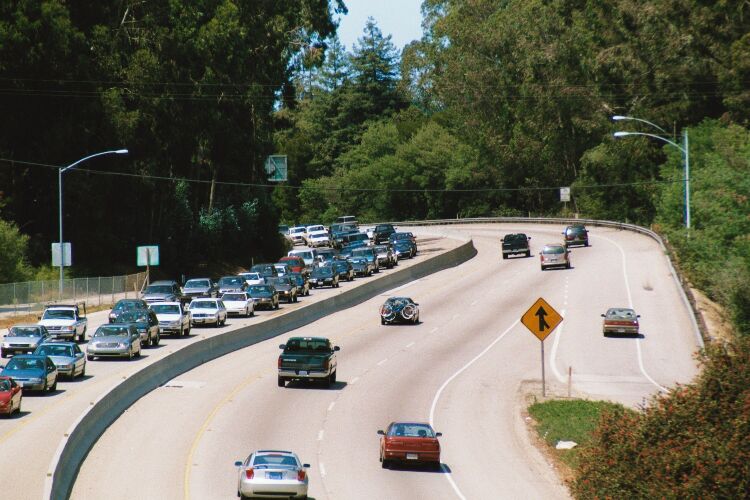
You usually can’t see it, but the Omaha- Council Bluffs metro area has a problem with air quality, especially during the warmer spring and summer months. It is ground-level ozone. Whether working, playing, or exercising outside, the quality of the air we breathe impacts the quality of life for our families, businesses, health and even future economic development.
Ozone located six miles up in the second layer of the atmosphere helps protect us from harmful UV rays. Ozone at ground-level ozone is a pollutant that affects our health, especially people with heart and lung conditions. Ozone forms when nitrogen oxides from fuel combustion combine with volatile organic compounds, such as fumes from gas and other solvents, and “cook” in the summer heat. Vehicle emissions are one of the leading creators of ground-level ozone.
On October 1, 2015, the Environmental Protection Agency (EPA) issued new air quality standards and tightened the ozone standard. The updated standard requires metropolitan areas to have ground-level ozone of no more than 70 parts per billion (ppb), a reduction from the previous standard of 75 ppb.
On an average hot day, like we’ve been experiencing lately, the Omaha-Council Bluffs metropolitan area is close to exceeding this new standard for ground-level ozone. If the metro area would end up falling below federal air quality standards and being in “non-attainment,” it would bring stricter pollution controls such as increased car ownership costs, vehicle inspections, more industry regulation and increased paperwork and reporting for businesses.
The Metropolitan Area Planning Agency (MAPA) runs the Little Steps Big Impact campaign that aims to raise awareness about the ozone problem through education.
Just because you can’t see ground-level ozone doesn’t mean it isn’t there. As stewards of our quality of life we each need to do what we can to help.
We all can be a part of the solution to reduce ground-level ozone by taking Little Steps which make a Big Impact.
By considering the consequences and taking small steps, together we will make a big difference in air quality. This means having a real impact on adult and child respiratory issues, which can reduce health costs.
“Little Steps” you can take that can have a “Big Impact”:
You don’t have to give up your usual mode of transportation entirely. Drive smarter. Combine errands, carpool to social events. Only drive when you have to. Consider using alternative transportation by taking the bus, biking, or walking instead of driving by yourself in your car. Do this for free with TravelSmart!
. When refueling your vehicle, don’t fill up your tank past the click. Do fill your tank during the cooler parts of the day so fumes can disperse overnight and.
. Choose cleaner-burning renewable biofuels like ethanol and biodiesel when fueling your vehicle. All vehicles can use E10. FlexFuel vehicles can use E10, E15, E30 and E85.
. Avoid idling your vehicle. Even 30 seconds uses more fuel than stopping and starting the engine.
. Go electric or manual with mowers, leaf blowers and trimmers if possible or use gas-powered lawn equipment during the cooler parts of the day. Gas-powered mowers release as much as 25% unburned gasoline in the air.
. Keep lids tightly on paints and solvents.
Material above provided by MAPA and used with permission.
Med Center named a “top collector” by Terracycle
By Melanie Stewart
Great work everybody!
Nebraska Medicine and the University of Nebraska Medical Center have been named a top nationwide collector of writing instruments in the Writing Instrument Recycling Program, a free, national recycling program created by TerraCycle®. By collecting an assortment of writing instruments like pens, mechanical pencils, markers, permanent markers and highlighters of all brands, UNMC and Nebraska Medicine has helped to divert 1,852 qualified units of writing instruments from local landfills this year alone.
Who can forget our “pen angel” made by Anne Rivas while we packed up our largest shipment to date?!?
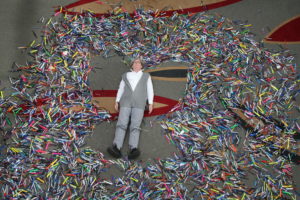
“We have been upcycling defunct writing instruments through Terracycle since 2012 and are honored to be a top collector in the nation,” said Melanie Stewart, Sustainability Manager for Nebraska Medicine and UNMC. “We have taken great strides in sustainability on campus and are so proud that we have been able to divert something not typically recyclable away from the landfill.”
For every writing instrument recycled through the recycling program, we earn points that can be redeemed as a cash donation for us to further sustainability efforts on campus. TerraCycle recycles the traditionally non-recyclable waste into new plastic products such as park benches and picnic tables.
“Becoming a top collector in a TerraCycle recycling program shows great dedication to sustainability,” said TerraCycle CEO Tom Szaky. “Without the hard work and commitment of the people who make the programs successful, we wouldn’t be able to keep as much waste from ending up in landfills.”
For more information about the on campus program, click here.
Curious about TerraCycle?
TerraCycle, Inc., is the world’s leader in the collection and repurposing of hard-to-recycle post-consumer waste, ranging from used chip bags to coffee capsules to cigarette butts. The waste is collected through free, national, brand-funded platforms called “Brigades,” as well as various consumer and government-funded models. The collected waste is reused, upcycled or recycled into a variety of affordable, sustainable consumer products and industrial applications. Each year, across 21 countries, TerraCycle collects and repurposes billions of pieces of waste, donating millions of dollars to schools and charities in the process. To learn more about TerraCycle or get your household involved in one of their recycling programs, please visit www.terracycle.com.
Ash Trees in Jeopardy, EAB is here
By Melanie Stewart
The Emerald Ash Borer (EAB) has been confirmed in Douglas and Cass Counties, forcing quarantines and treatment zones to be enacted in Douglas, Sarpy, Cass, Saunders, Lancaster, Washington, Dodge, Pottawattamie, and Mills counties. It is an invasive beetle that whose larvae bore into the layer of wood beneath the bark, which is responsible for water and nutrient movement in the tree, and this eventually kills the tree. Once an area is infested, it’s estimated that 80% of ash trees will be killed in the first 8 years.
Omaha has an estimated 100,000 ash trees, all of which could be wiped out by an EAB infestation. This will remove 14% of Omaha’s tree canopy and change the landscape of our city, while increasing air-conditioning costs. To help spread awareness, the Omaha Parks Foundation and City of Omaha Forestry Division have participated in EAB Awareness Week for several years. Ironically, this is how the EAB was discovered. Several trees have been wrapped with bright emerald ribbons to show what’s at risk. This includes several trees on campus.
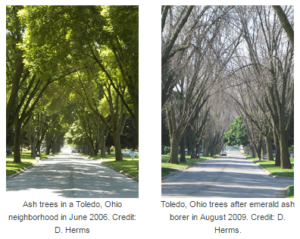
While we have a diverse species of trees on campus, almost every tree lining Emile and Farnam Streets on the 42nd and Dewey campus are ash trees, including the trees the purple martins use in their migration. Almost all of the trees lining Regency Parkway, Abbot Drive, and along the streets of Memorial and Elmwood parks are ash trees.
Not only will we lose the trees and the benefits they provide, but removal of the dead trees will cost millions of dollars. EAB has killed hundreds of millions of ash trees in the U.S. since its discovery in 2002.
So what can you do to stop the devastation?
- Educate yourself on EAB, identify ash trees in your area, educate others.
- Observe the quarantine preventing the movement of firewood, mulch, timber, and green waste as beetles and larvae can hide, be transported, and infect other areas.
- Plant more trees now.
- Plant diverse species to protect against future loss.
- More than 60 species of broadleaf trees can be grown successfully in eastern Nebraska.
Are you a homeowner with an ash tree?
- Remove ash trees in poor condition.
- Treat healthy ash trees to slow down the spread of EAB.
- Spray and soil applications are available; talk to a certified arborist.
- Plant more trees now.
- Plant diverse species to protect against future loss.
Provide Feedback on Local Transportation
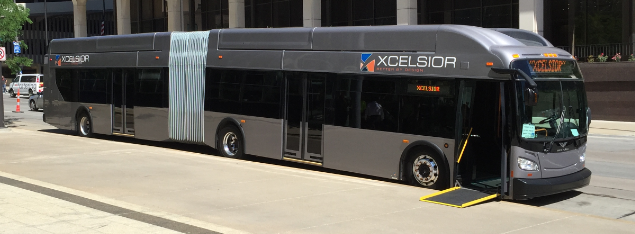
By Melanie Stewart
Omaha and the surrounding areas are expanding and changing and with those changes there are new opportunities.
You may have attending last week’s open house for Bus Rapid Transit; a new way to move people in the metro, akin to “Rail on Wheels”. BRT will launch in Omaha in 2018, with a stop at the Med Center. If you were unable to attend but would like to provide input on the bus, amenities, stations, etc. please take the following survey; the survey link is located on this page:
Link to Bus Rapid Transit Feedback Survey
In the meantime, you may already be or have thought about riding the bus as part of TravelSmart. The “92 Express bus” currently departs the med center on Dodge Street at 4 times in the afternoon. While it stops at 62nd, 74th, 84th, and 90th, it ultimately takes riders to the park and rides at 144th (FNB) and 175th (Village Point).
Metro has been reviewing ridership and are considering making changes to accommodate more people. If you currently take the 92 or have ever considered riding this route, please take the following survey by this Friday, the 24th.
As long as you are taking surveys, please consider taking the Metro Area Planning Agency (MAPA) long range transportation survey. MAPA is currently seeking public feedback on scenarios that will directly affect Douglas, Sarpy, and Pottawattamie counties, but will still affect those traveling in from Washington, Dodge, Saunders, Cass, Mills and Harrison counties. You will be asked to rank scenarios that will ultimately provide a vision for transportation development over the next several decades; affecting how you commute to work, how others are employed and get to their jobs, travel around the metro, and your tax dollars.
Link to MAPA Long Range Transportation Survey
Your input on these items will affect transportation options in the metro area, thank you for taking the time to share your comments.
Why is my space cold when it’s hot out?
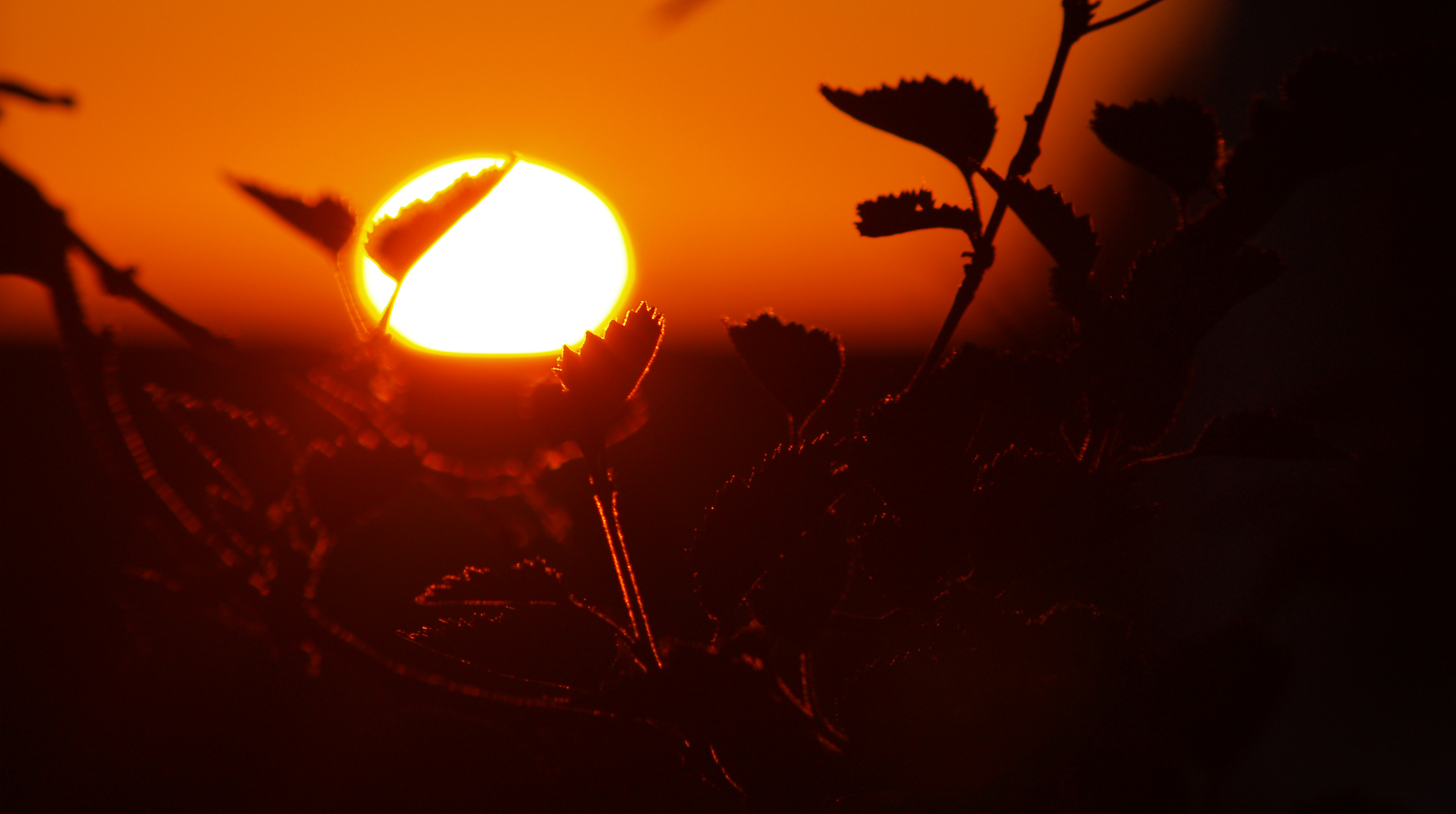
Once again, the heat and humidity have come earlier than we would like, which means we are in energy curtailment.
Many have asked, “Why is my office so dang cold? Aren’t we wasting energy by keeping spaces cold when it’s so hot?” That’s true of your home, where the system adds cool air and then turns off, waits for the temperature to rise, and then adds cooling again.
Patient care areas and research spaces require a constant rate of air flow. In buildings with these activities we combine both heated and chilled air, regulating temperature the way we adjust the water in a shower – adding both hot and cold to create a comfortable temperature. During curtailment, we produce less heated air because nature does that for us. This means some spaces will feel cold.
We also save energy by “pre-cooling.” Spaces are cooled just a little bit extra before it gets hot and the sun is beating down, which makes it easier for the system to keep up once the heat and humidity are in full force.
Buildings without research or patient care may feel warmer than usual, as less energy will be used to cool them. Please call 9-4050 (UNMC) or 2-3347 (Nebraska Medicine) to report spaces colder than 66 degrees or warmer than 75 degrees.
Why put ourselves through this? Lower energy use means better air quality, which means a healthier community, and better health is our mission.
Our utility rates are based on our peak use. The maximum amount of energy we use at a given time determines the rate we pay for the entire next year. We want to keep that peak as low as possible.
We need your help! When the outside temperature becomes unbearable, we’ll ask you to turn lights off where ambient light is adequate, unplug electrical devices when not in use, and to close your window blinds to keep the sun out. These easy steps combine to have a huge impact – during the hot days and in the year ahead.
So, counterintuitive as it seems, when the mercury climbs this summer, be prepared – dress in layers. Stow a sweater, closed-toe shoes, and some socks in a desk drawer. Help improve community health by keeping your lights off and your window blinds closed.
If improving health, reducing pollution, and saving money aren’t enough incentives, the TREAT PATROL will make the rounds, randomly showing up in spaces to reward people for these efforts:
To help ease the energy load:
- close shades, blinds and curtains whenever possible to reduce solar heat gain;
- lower lighting levels where possible, turn off lights in unoccupied areas and when leaving a room;
- turn off and unplug all electrical equipment not in use (computers, coffee makers, printers, chargers, etc.), especially in offices;
- shut fume hood sashes when not in use; and
- open doors manually instead of using the ADA buttons.
30×30 Nature Challenge
By Melanie Stewart
You may not have heard of the U.S. Green Building Council (USGBC), but you’ve probably heard of LEED (Leadership in Energy & Environmental Design) certification for buildings, which is the credentialing the USGBC provides for building construction. Here, we are covered by the USGBC Nebraska Flatwater Chapter.
The USGBC understands that the built environment is important, but it envisions “buildings and communities that will regenerate and sustain the health and vitality of all life within a generation.” Essentially, the built environment needs to work with nature instead of against it, or by dominating it. Working against nature can negatively affect our health and overall wellbeing.
The USGBC is asking everybody to spend 30 minutes outside in nature for the 30 days in June, hence the 30×30 challenge. That can’t be hard, right? Just 30 minutes of your day outside? You can take the dog for a walk, read in the shade of a tree, spend time in the garden, explore a new walking path, take the kids to a park and/or admire the sights, sounds and smells from anyplace—just get outside!
Benefits to you include:
- Decreased stress
- Exercise
- Stronger relationships
- Lowers blood pressure
- Reduces fatigue and helps children focus and control impulses
- Greater productivity, at home and work
- Increased satisfaction
- Improved memory, problem solving, creativity, and attention span
- Building community/camaraderie among neighbors
- Have a heightened sense of well-being
You can do this before work, on your lunch or break, or after work. Don’t forget that some of your favorite places are different in the dark, and that’s worth exploring too.
Like trees? Studies show heading to a forest can have additional benefits, and Fontenelle Forest is a great local attraction, (and they have Nature Discovery Day Camps for kids!).
After your 30 days are up, take stock of how you feel (bonus points for keeping a journal along the way). What benefits have you observed in your own life? Do you take a walk at lunch and find that you get more done in the afternoon? Did you have more or deeper conversations with your kids? Did your overall stress diminish? Maybe you lost a few pounds? Is your dog less destructive indoors?
Whatever it is, everybody will benefit from the 30×30 challenge. So what are you waiting for?
Up for a Challenge?
By Melanie Stewart
Do you like to bike? Maybe it’s for exercise, something fun to do with your kids, or part of your daily commute (hopefully as part of TravelSmart!). Whatever the reason, consider participating in the National Bike Challenge. Signing up is free, it allows you to track your cycling miles whether for transportation or recreation, and can promote improvements to cycling infrastructure in our community.
In 2014 our community created a mega-team, Omaha VeloCity, to compete with mega-teams created in other cities across the country. Omaha VeloCity finished #2 in the nation in 2014 and #5 last year, with 399 area cyclists participating. Let’s increase that number and move our ranking back up!
Many of you may remember Jack Mayfield, an avid cyclist who worked on campus and with UNeMed. Jack was instrumental in starting and promoting team Omaha VeloCity, and you can read about him here.
The National Bike Challenge began May 1st and concludes September 30th. Sign up today and begin tracking your miles (each trip of a mile or more gets 10 points and an additional point for every mile ridden). Indicate your team as Omaha VeloCity and your employer as Nebraska Medical Center. By demonstrating that cycling matters, you can help our community and city leaders understand the need for better infrastructure and safer streets. If that’s not enough, you can also win prizes!
While you’re at it, sign up for the Live Well Omaha Commuter Challenge. It occurs in conjunction with the National Bike Challenge and encourages all of us to use active transportation. Sign up for the Omaha Commuter Challenge here and log bus, bike, walking, and carpooling trips. Oh, did I mention you can win prizes here too?
Walking, cycling, carpooling, and taking the bus are great ways to become healthier, improve the air quality in Omaha, and even win prizes! So what are you waiting for? Clink the links above to sign up and we’ll see you out there.
Other Resources:
The Omaha Metropolitan Area Bicycle Map
Paths of Discovery – Metro Area Trails Map
Zimride; Med Center Carpool Matching
Sustainability Master Plan Update, conclusion
By Melanie Stewart
This is the final installment of this year’s Sustainability Master Plan (SMP) update. Click on these links to read past articles on the changing of a few baselines, Engagement/Planning/Food Service goals, and the incredible achievements in the energy, water, and emission goals.
The Transportation goal is to have 20% of campus employees and students commuting to campus via active transportation instead of using single occupant vehicles. This reduces parking demand on campus, reduces traffic congestion around the area, saves participants money, and improves community and personal health by increasing activity and reducing pollution. The baseline for this goal is 12.7% and our current participation is at 18.6%. This is a fantastic increase and largely due to TravelSmart. I’m hoping you’ve heard of TravelSmart, but please visit our website if you have ever considered carpooling, biking, walking, or taking the bus to work. This will help to clear up any misconceptions surrounding some of these options. As always, if you have questions, please email TravelSmart@unmc.edu
Last but certainly not least is Materials. While all focus areas have a primary and secondary goal, these are equally important when it comes to Materials. The first goal is to reduce the total amount of outgoing materials (waste and recycling) by 25%. Our baseline weight was 7,459,002 pounds per year and we have reduced this by 8.5%, to 6,828,384 pounds. This is good progress and we’ll need to work hard to keep up that pace as we open new buildings and have more people on campus. The second goal is to increase the amount of material diverted from the landfill to 35%. Our baseline was 22.9% and unfortunately we went down to 19.3%. However, there is a good reason for this: we used less materials in general; and “reduce” is always a better alternative than recycling. One of the largest reductions is in paper use, as fewer items are being printed and more items are printed double-sided. Paper is something we all recycle as part of HIPAA/FERPA policy, but by not printing as much, there’s less to recycle, resulting in a reduction of recycled materials. While this is the best possible reason for this reduction we still have a long way to go to meet our goal. Look for more information soon on recycling on campus.
This concludes the SMP update for this year. To read the plan, strategies to meet our goals, or to look at secondary metrics, please see the SMP webpage.
